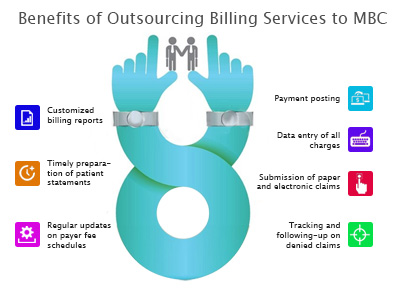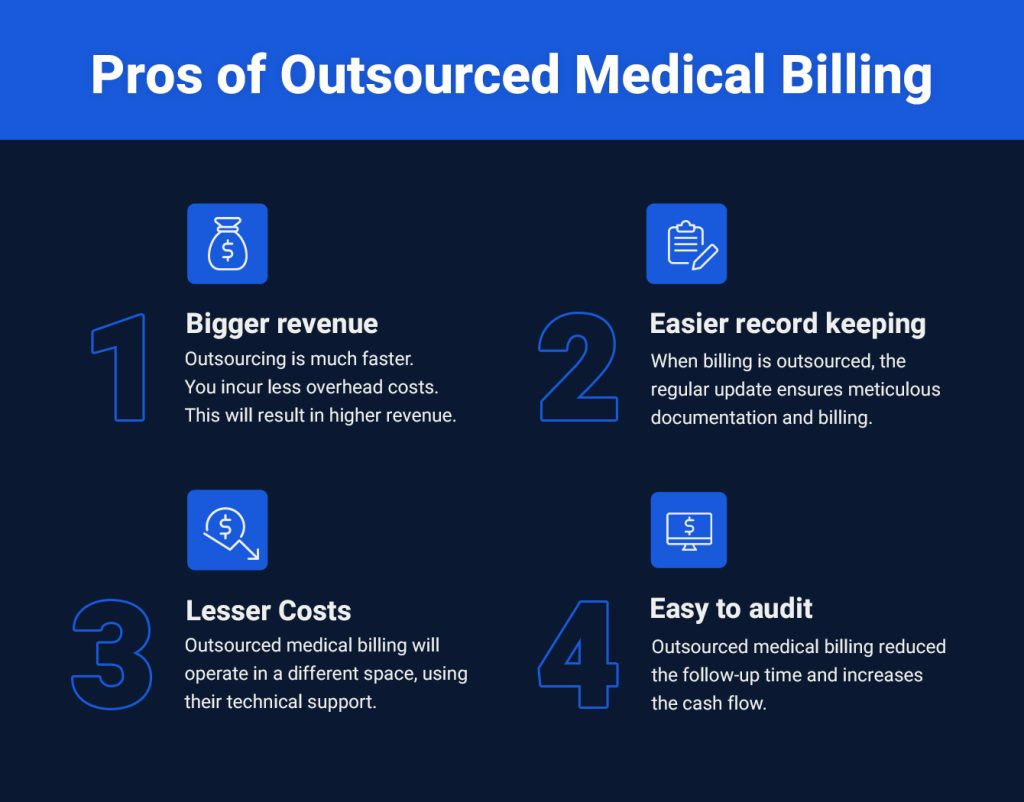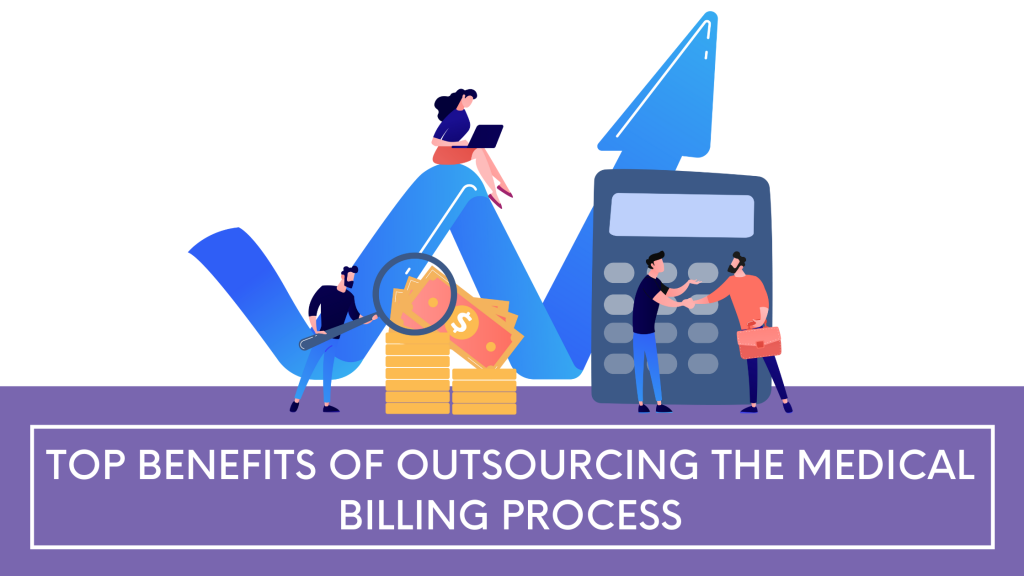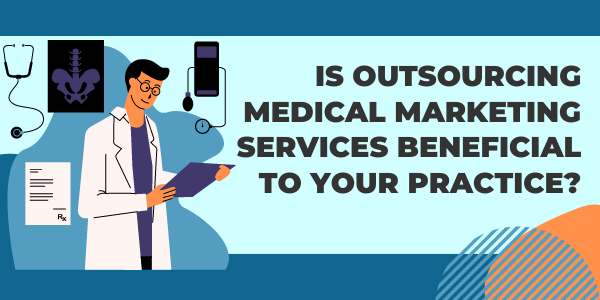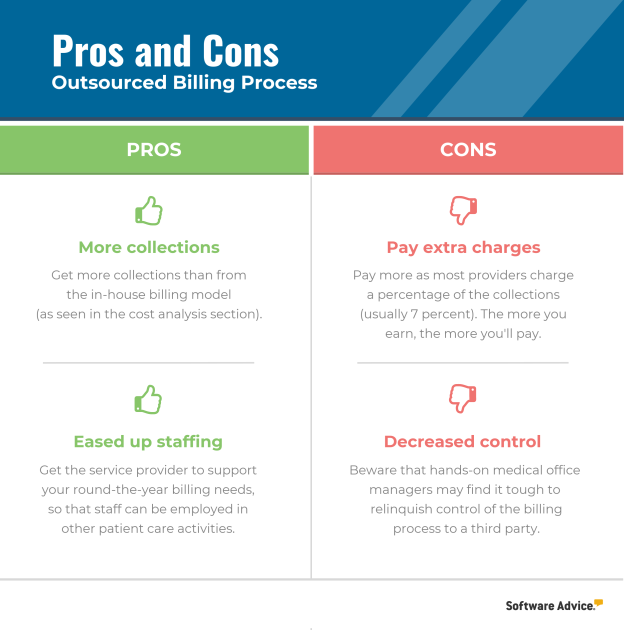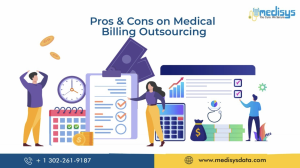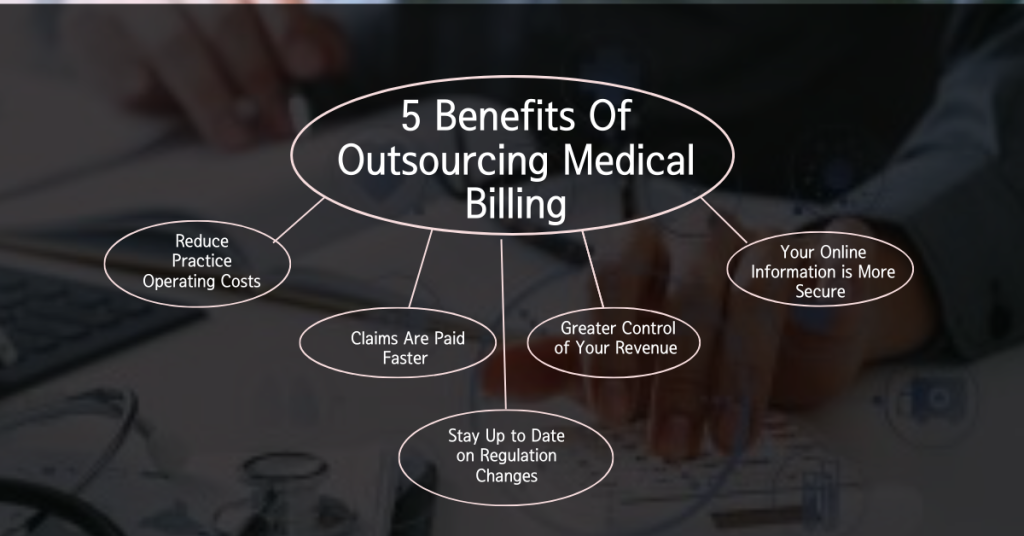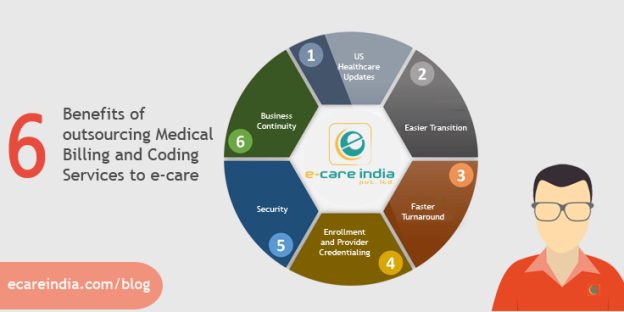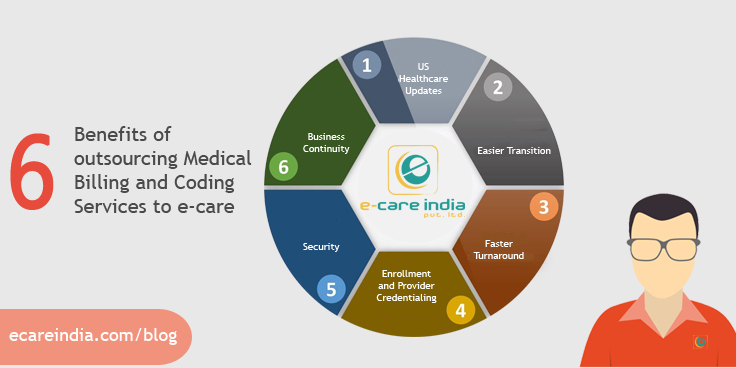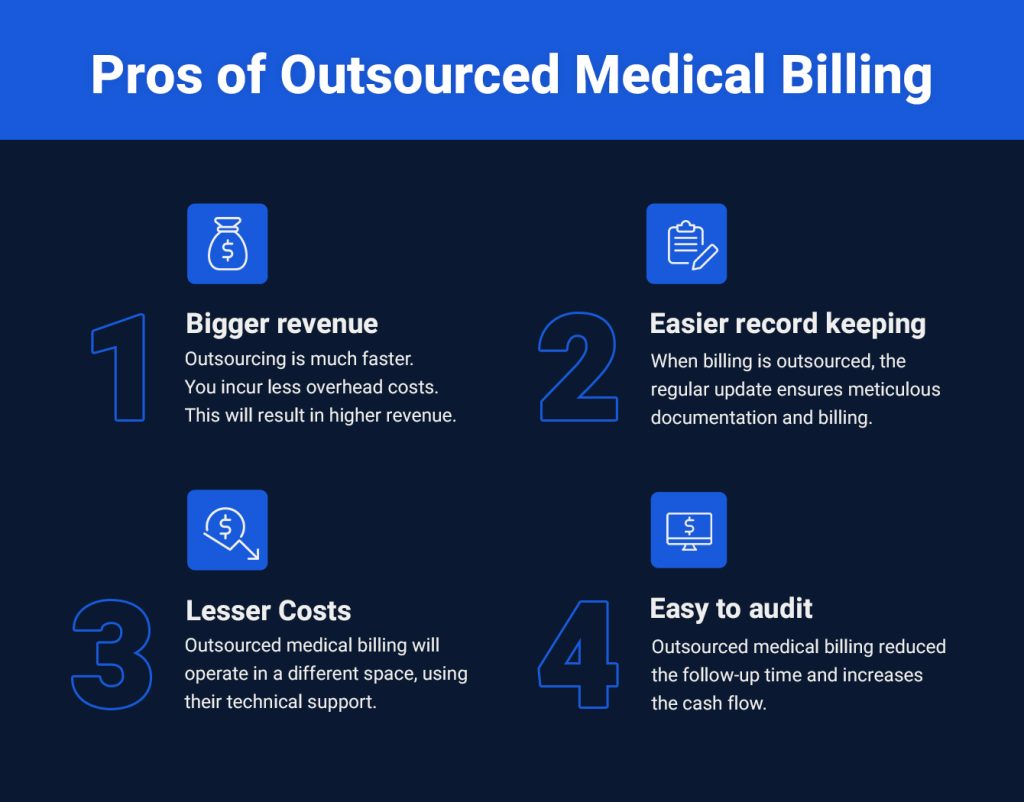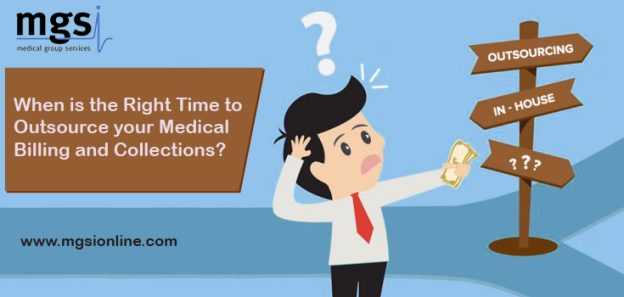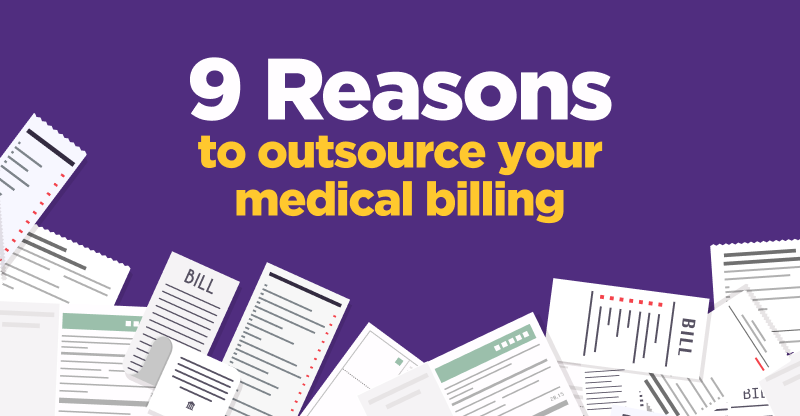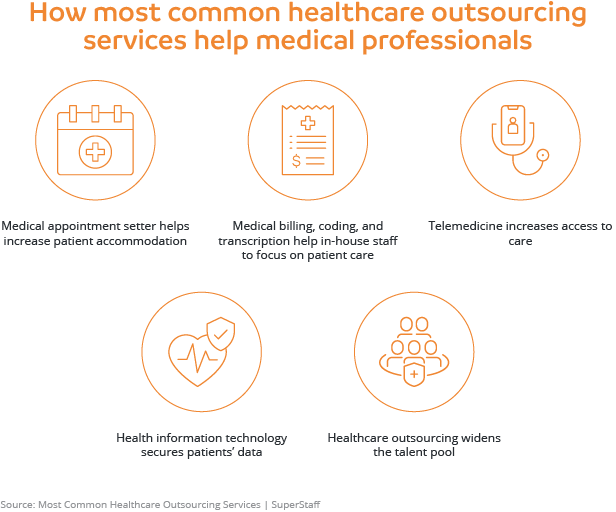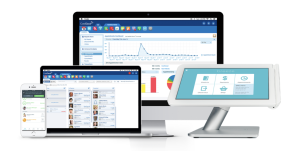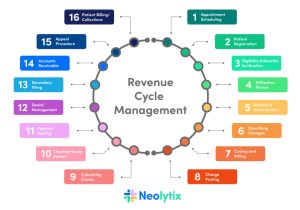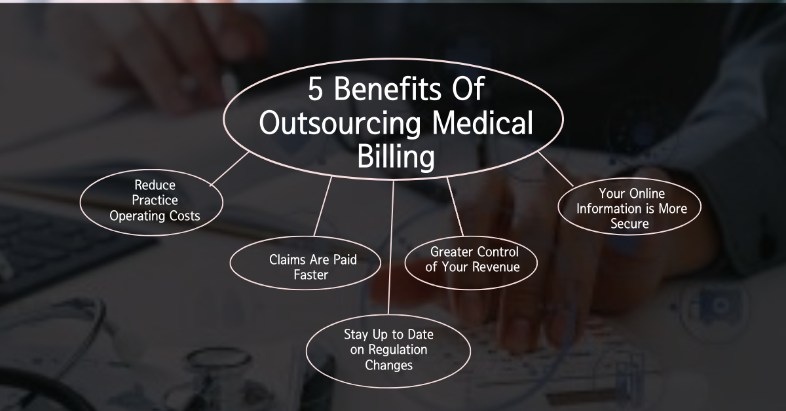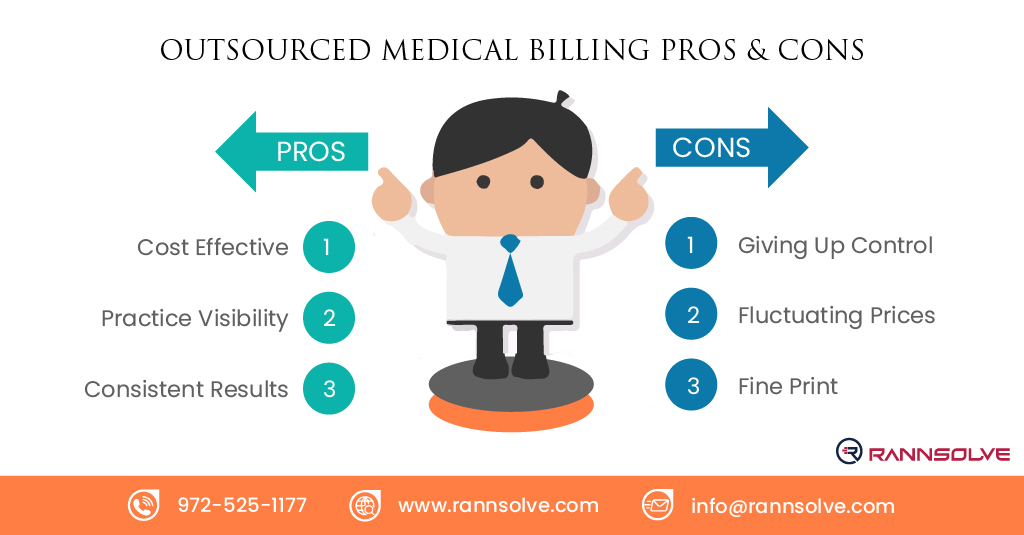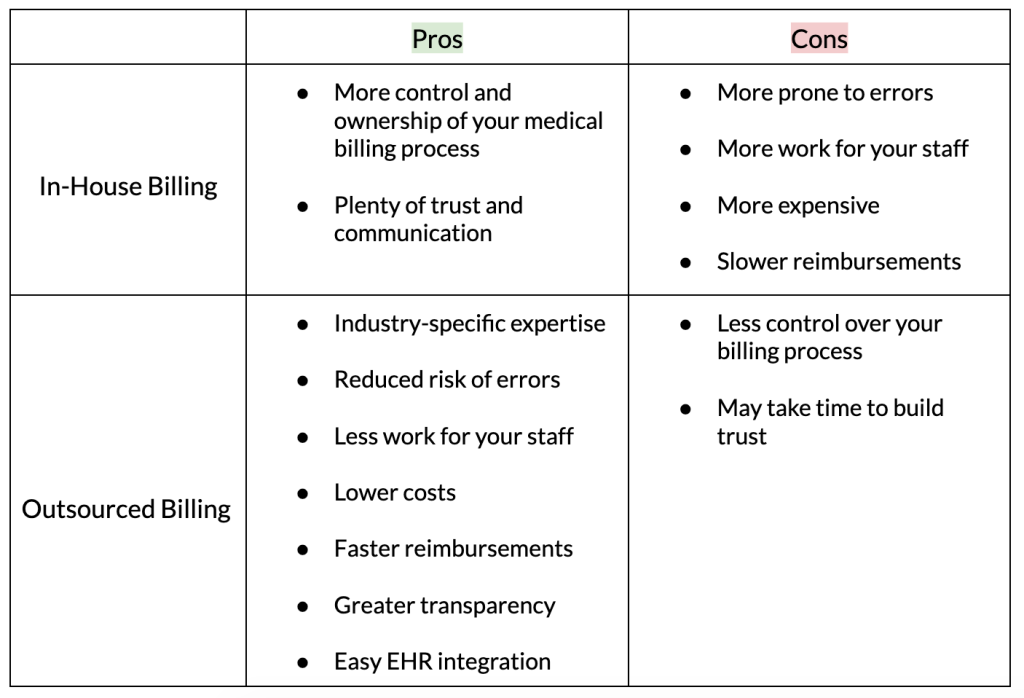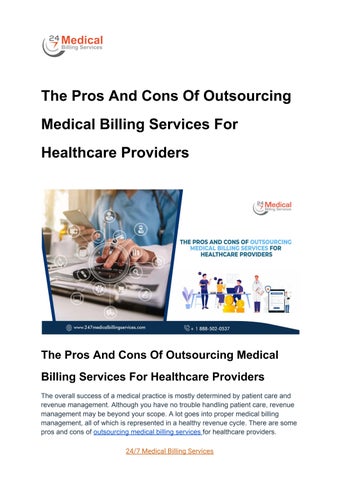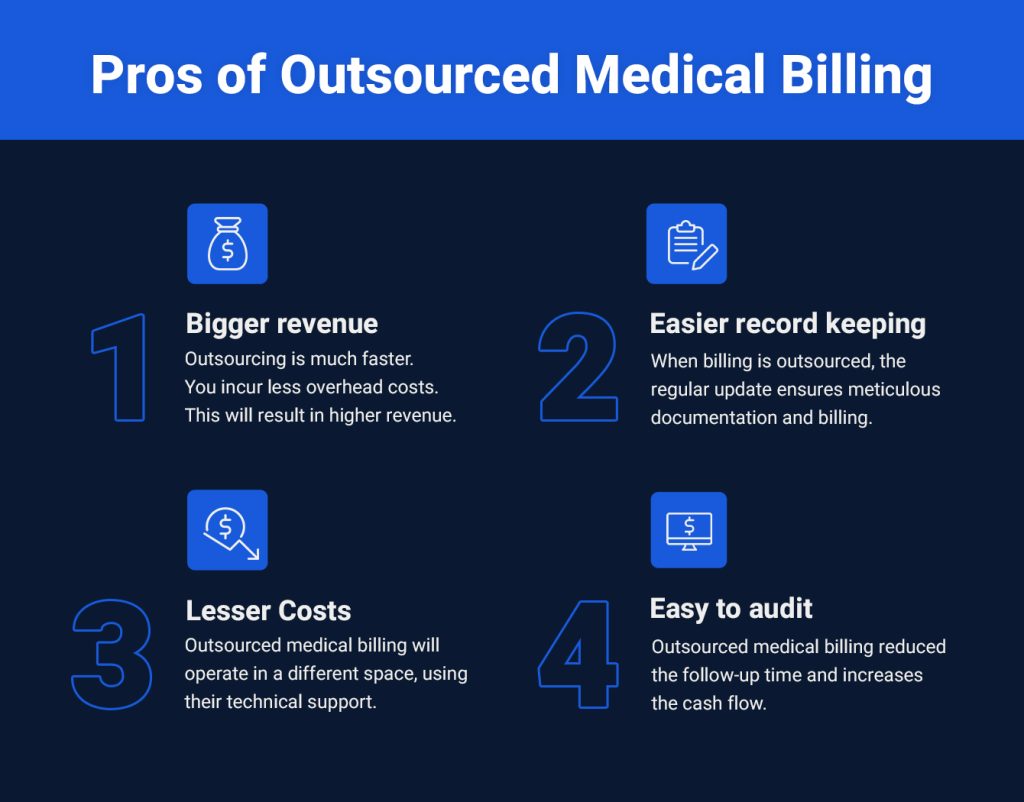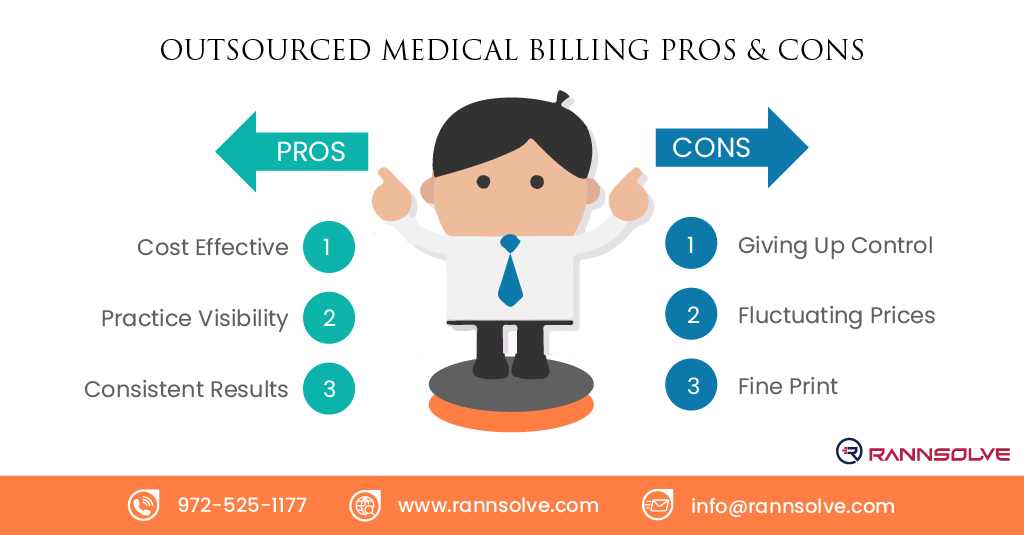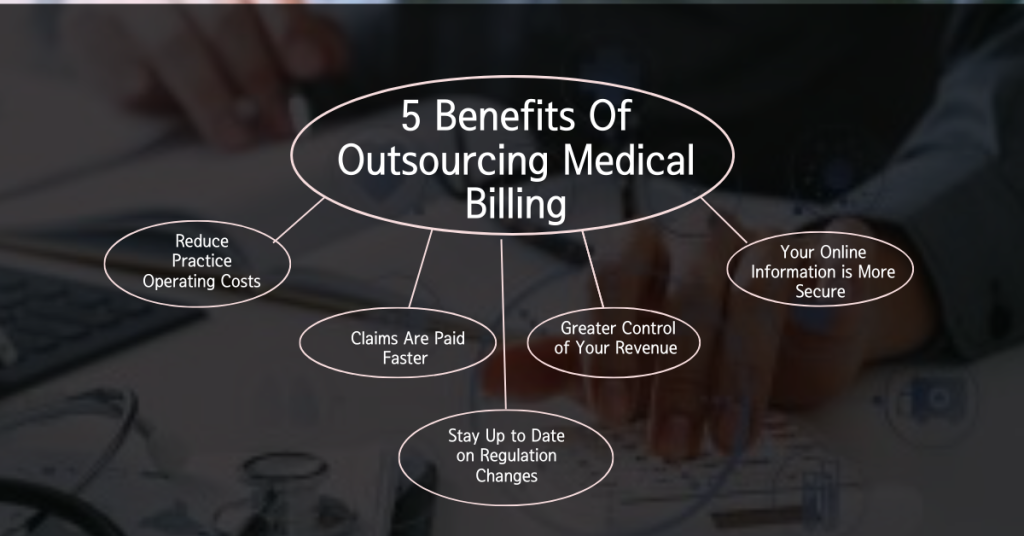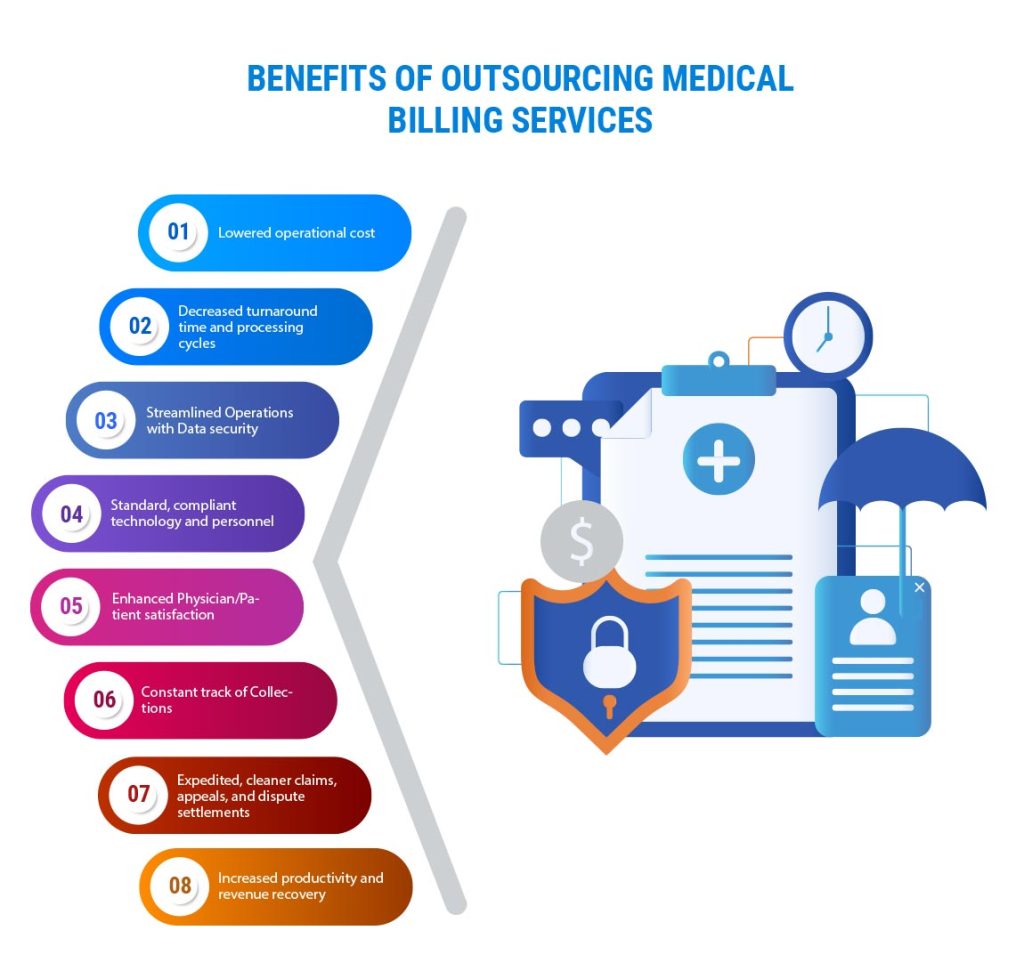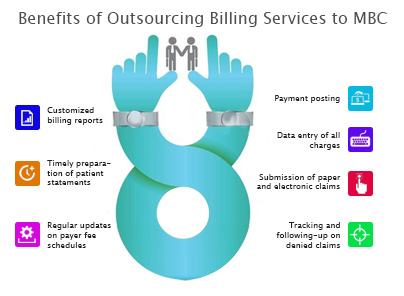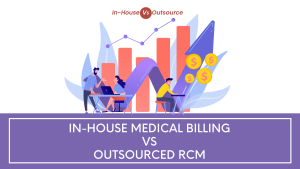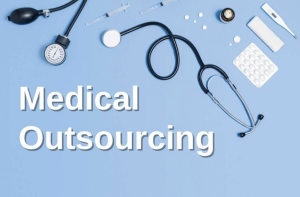In the rapidly evolving healthcare landscape, the need for efficient and accurate medical billing services has become crucial. To keep up with the ever-increasing complexity of healthcare regulations, many healthcare providers are turning to outsourced medical billing solutions. These solutions not only relieve healthcare organizations from the burden of managing billing processes in-house, but also ensure streamlined operations, increased revenue, and improved patient satisfaction. But who are the leading providers in this thriving industry? This article explores the top players in the outsourced medical billing sector, shedding light on their expertise, reputation, and client satisfaction to help you make an informed decision for your organization’s billing needs.
Overview of Outsourced Medical Billing

Outsourced medical billing refers to the practice of hiring external companies or service providers to handle the billing and coding processes for healthcare providers. This outsourcing allows healthcare organizations to focus on patient care while leaving the intricate and time-consuming task of medical billing to experts in the field.
Definition of outsourced medical billing
Outsourced medical billing is the process of entrusting the management and processing of medical claims, including coding, billing, and reimbursement, to specialized third-party vendors. These vendors typically have extensive experience and expertise in medical billing, and they handle the entire revenue cycle management for healthcare providers, including hospitals, clinics, and individual practitioners.
Benefits of outsourcing medical billing
The decision to outsource medical billing comes with various benefits for healthcare providers. Firstly, outsourcing reduces the administrative burden on healthcare organizations, allowing them to focus on core clinical operations. It also alleviates the need to invest in costly billing software and technology, as outsourced billing providers possess their own advanced systems.
Outsourcing medical billing also improves revenue cycle management by reducing billing errors and claim rejections. These providers have a deep understanding of healthcare regulations and coding guidelines, ensuring accurate and compliant submissions. Additionally, outsourcing enables healthcare providers to access specialized expertise in various medical specialties, ensuring effective coding and billing for a diverse range of services.
Types of healthcare providers who outsource their medical billing
A wide range of healthcare providers can benefit from outsourcing their medical billing functions. This includes hospitals, physician practices, ambulatory surgery centers, dental offices, chiropractic clinics, mental health providers, and rehabilitation centers. Any healthcare organization that relies on revenue from insurance reimbursements can benefit from the expertise and efficiency of outsourced medical billing providers.
Criteria for Leading Providers of Outsourced Medical Billing
When choosing a provider for outsourced medical billing, it is crucial to consider several key criteria to ensure reliable and efficient services. These criteria include:
Experience and expertise in medical billing
One of the most important criteria is the level of experience and expertise that the provider possesses in medical billing. It is crucial to choose a provider with a proven track record and a deep understanding of industry best practices. The provider should have a team of certified medical coders and billing experts who are skilled in handling complex coding and reimbursement processes.
Compliance with healthcare regulations
Compliance with healthcare regulations is of utmost importance in medical billing. Leading providers should demonstrate a comprehensive understanding of HIPAA regulations, coding guidelines, and payer-specific policies. Their systems and processes should be built to ensure the privacy and security of patient information, and they should have robust mechanisms in place to safeguard against potential breaches.
Ability to handle diverse medical specialties
Healthcare providers often have unique billing requirements based on their specialties. Leading medical billing providers should have experience and expertise in handling a wide range of medical specialties, from primary care to highly specialized fields. This expertise ensures accurate and efficient coding and billing for all types of services, optimizing revenue capture for healthcare organizations.
Integration with healthcare management systems
Efficient integration with existing healthcare management systems, such as electronic health record (EHR) systems, is crucial for seamless communication and data exchange. Leading providers should have the capability to integrate with various EHR platforms, reducing manual data entry and minimizing the potential for errors. This integration enhances workflow efficiency and improves overall revenue cycle management.
Client feedback and testimonials
The reputation of a medical billing provider can be gleaned from client feedback and testimonials. Leading providers should have a robust portfolio of satisfied clients who can vouch for the quality and reliability of their services. Positive client testimonials can provide valuable insights into the provider’s responsiveness, accuracy, and overall customer service.
Leading Providers of Outsourced Medical Billing
Several leading providers have established themselves as trusted partners in the field of outsourced medical billing. Here are three exemplary companies that have consistently delivered exceptional services:
Company A
Overview of Company A
Company A is a renowned provider of outsourced medical billing services with over 20 years of industry experience. They offer end-to-end solutions for revenue cycle management, catering to healthcare providers of all sizes and specialties.
Key features and services offered by Company A
Company A provides comprehensive medical billing services, including billing and coding, claims submission and management, payment posting, and denial management. They have a team of certified medical coders who are highly skilled in a wide range of medical specialties. Company A also offers customized reporting and analytics to help healthcare organizations gain insights into their revenue cycle performance.
Client testimonials for Company A
Company A has received rave reviews from their clients, highlighting their exceptional customer service and expertise in medical billing. Clients praise their accuracy in coding and billing, as well as their promptness in resolving any issues. The company’s commitment to compliance and their ability to adapt to evolving healthcare regulations is also highly valued by their clients.
Company B
Overview of Company B
Company B is a leading provider of outsourced medical billing solutions, known for their innovative technology and commitment to customer satisfaction. With a strong focus on healthcare compliance, they cater to healthcare providers of all sizes and specialties.
Key features and services offered by Company B
Company B offers a wide range of services to support revenue cycle management, including electronic claims processing, coding and documentation audits, and denial management. Their advanced technology solutions streamline the billing process, reducing administrative burden and improving efficiency. Company B also provides dedicated account managers who offer personalized support and guidance to their clients.
Client testimonials for Company B
Clients of Company B have praised their user-friendly technology platform, which simplifies the billing and claims management process. Their clients appreciate the transparency and visibility provided by the platform, allowing for real-time tracking of claims and reimbursements. Company B’s customer service team is also highly regarded for their responsiveness and willingness to go above and beyond to address client needs.
Company C
Overview of Company C
Company C has emerged as a leading provider of outsourced medical billing services, catering to healthcare providers across various specialties. They combine cutting-edge technology with industry expertise to offer comprehensive revenue cycle management solutions.
Key features and services offered by Company C
Company C offers a comprehensive suite of services, including insurance verification, charge entry, payment posting, and patient statement generation. They have developed their own proprietary billing software that seamlessly integrates with existing healthcare systems, minimizing disruption to workflow. Company C also provides regular analytics and performance reports to help healthcare organizations track and optimize their revenue cycle.
Client testimonials for Company C
Clients of Company C have praised their attention to detail and accuracy in billing and coding. The ability of Company C to tailor their services to the unique needs of each client has been highly appreciated. Clients have also commended their knowledgeable and responsive staff, who provide timely assistance and resolve any billing-related issues efficiently.
Comparison of Leading Providers
When selecting an outsourced medical billing provider, it is crucial to compare the offerings and capabilities of different companies. Here are some key factors to consider when making a comparison:
Cost-effective pricing models
Compare the pricing models offered by different providers to ensure that they align with your budget and revenue goals. Consider whether they charge a percentage of collections, a fixed monthly fee, or a combination of both. Look for providers that offer transparent pricing and can justify the value they bring to your revenue cycle management.
Technology and software solutions
Evaluate the technology and software solutions offered by each provider. Consider whether they have a user-friendly interface, advanced reporting capabilities, and integration with popular EHR systems. Look for providers that use secure and scalable technology that can accommodate your organization’s future growth.
Range of medical specialties served
Consider the range of medical specialties that the provider has experience in. Ensure that they have expertise in your specific specialty, as this will guarantee accurate coding and billing. Look for providers that have a dedicated team of certified medical coders who are knowledgeable in your field.
Customer support and responsiveness
Assess the level of customer support offered by each provider. Look for providers that offer dedicated account managers or support teams who are readily available to address any concerns or questions. Consider their responsiveness to inquiries and their ability to resolve issues promptly.
Security and compliance measures
Ensure that the provider prioritizes data security and compliance with healthcare regulations. Look for providers that have robust security measures in place to protect patient information. Verify that they are HIPAA-compliant and have undergone audits or certifications to validate their adherence to industry standards.
Challenges and Limitations
While outsourcing medical billing offers numerous benefits, there are potential challenges and limitations to consider:
Potential risks of outsourcing medical billing
Outsourcing medical billing involves sharing sensitive patient information with a third-party provider. There is a potential risk of data breaches or mishandling of patient information. It is crucial to choose a provider with robust security measures in place to mitigate these risks and ensure patient privacy.
Limitations of outsourced medical billing
Outsourced medical billing providers may not have the same level of familiarity with your organization and its unique workflows compared to in-house staff. This lack of familiarity can sometimes lead to miscommunication or delays in resolving issues. It is important to establish effective lines of communication and regular feedback mechanisms to overcome these limitations.
Strategies to mitigate challenges
To mitigate the potential challenges of outsourcing medical billing, it is important to establish clear expectations and communication channels with the provider. Regular meetings and feedback sessions can help address any issues or concerns promptly. Additionally, healthcare organizations should conduct thorough due diligence when selecting a provider, ensuring they have a proven track record of security and compliance.
Considerations before Choosing an Outsourced Medical Billing Provider
Before finalizing a decision on an outsourced medical billing provider, consider the following factors:
Medical billing requirements and complexity
Assess the specific billing requirements and complexity of your healthcare organization. Consider whether the provider has experience in handling similar complexities, such as multiple locations, high claim volumes, or unique coding requirements. Aligning the provider’s capabilities with your specific needs is crucial for a successful partnership.
Integration with existing healthcare systems
Evaluate the provider’s ability to seamlessly integrate with your existing healthcare systems, such as EHR or practice management software. Compatibility and data exchange capabilities are essential for minimizing disruptions to workflow and streamlining the revenue cycle process.
Customizability and scalability
Consider whether the provider can tailor their services to meet your organization’s unique needs. The provider should be willing to accommodate specific billing preferences and adapt to changes in your organization’s size or structure. Ensure that they have the scalability to support future growth or changes in your medical practice.
Reputation and track record
Thoroughly research the reputation and track record of the provider. Look for references and testimonials from existing clients, and assess their overall client satisfaction rates. Consider factors such as promptness in claim submission, accuracy in coding, and responsiveness to client inquiries. A provider with a strong reputation and positive client feedback is more likely to deliver reliable and efficient services.
Data security and privacy
Verify the provider’s data security and privacy measures. Request information on their security protocols, encryption methods, and disaster recovery plans. Ensure that they have robust safeguards in place to protect patient information and comply with applicable healthcare regulations.
Conclusion
Outsourcing medical billing can be a strategic decision that brings significant benefits to healthcare organizations. By entrusting billing processes to specialized providers, healthcare providers can enhance revenue cycle management, reduce administrative burdens, and ensure compliance with healthcare regulations. When selecting an outsourced medical billing provider, it is essential to consider factors such as experience, compliance, technology solutions, and client satisfaction. By making an informed decision, healthcare organizations can confidently partner with leading providers and optimize their revenue cycle management for improved financial performance.


